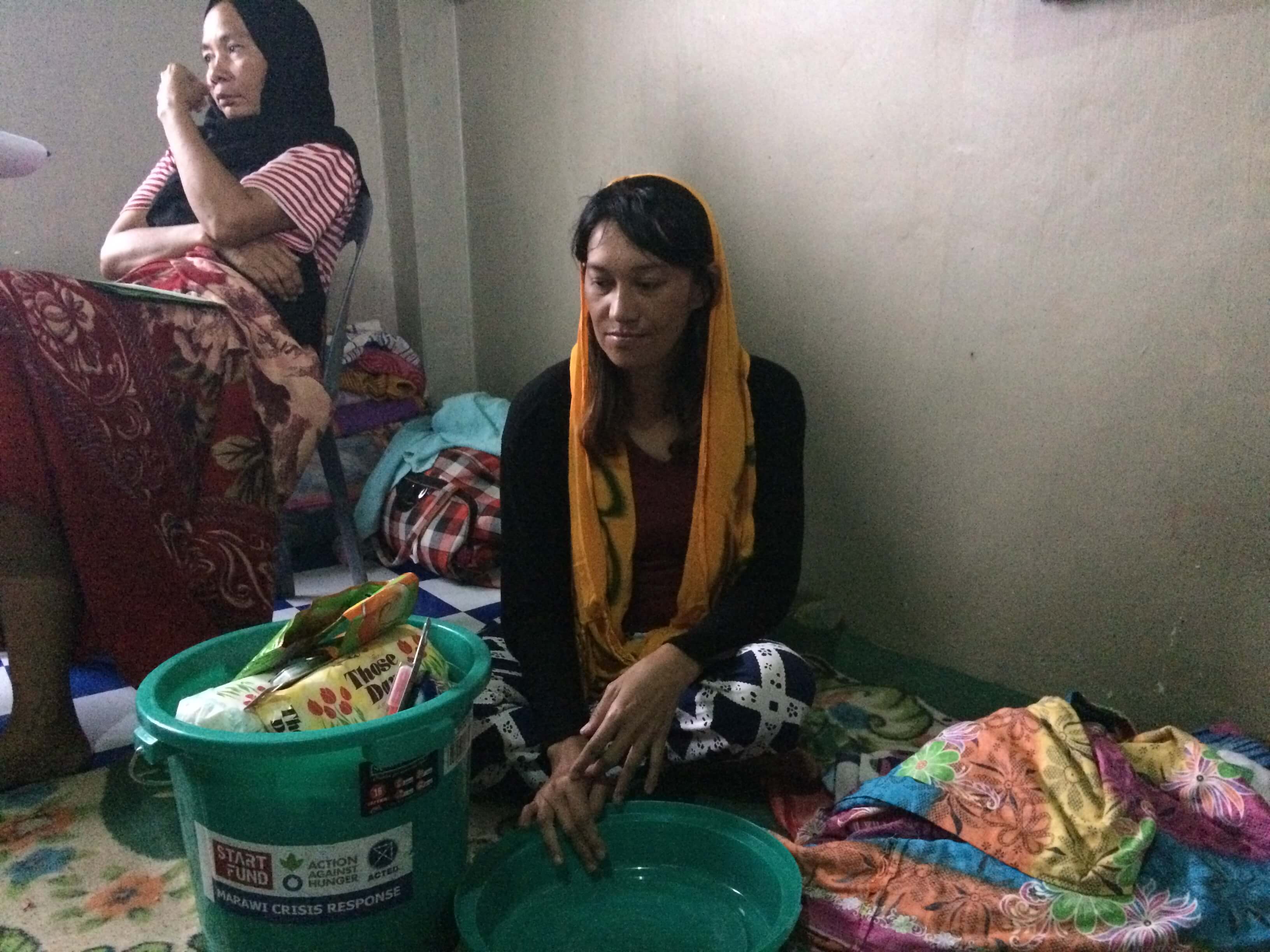It’s far from ideal for any family, but for Seria, her four young children and two adult relatives a former poultry house has become their temporary home.
Several weeks after fighting broke out as armed Islamists swept into Marawi city on the Filipino island of Mindano, causing 380,000 people to flee, she and her family are glad of the low, grey breeze-block building where they have been sheltering since early in June.
They’re also grateful for the emergency aid delivered by ACTED, one of four Start Network members to be awarded funding for a rapid response to the sudden humanitarian crisis. Because Seria is not in an official evacuation centre, they were hard for the government to reach in its initial response to the crisis; and because of her particular circumstances it was difficult for her to move around.
“Transportation costs hamper our access to relief because most humanitarian organisations preferred distribution points along the highway,” she said. “We are thankful that ACTED came to us and delivered the items just in front of our temporary shelter.”
Within two days of violence erupting, ACTED deployed a rapid response assessment team, that team conducted an assessment of displaced people in seven places, consulting with locally on the needs and gaps. The Start Fund was activated and projects were selected just a few days later. The speed of its response was crucial to many of those reached by ACTED, Action Against Hunger, Oxfam and Catholic Relief Services (CRS). So was the fact that, in line with its remit, the Fund has been used to fill gaps in the official response.
In Seria’s case it has meant non-food items and hygiene kits, essential to the health and dignity of families who fled their homes without time to collect spare clothes or other belongings, and who in most cases have lost their normal source of income.
Most of those displaced are living informally with friends or relatives, crowded in makeshift accommodation in neighbouring towns and villages and at one point, only 16,000 people were staying in the 73 official evacuation centres. How long they will have to remain away from home is unclear - even when fighting finally ends the risk of hidden explosive devices and fresh incursions by armed groups will continue.
With twins aged two, and two sons with disabilities, the last few weeks have been difficult for Seria and her family. “I never imagined war in Marawi City because it’s a peaceful place, people are usually busy in the market or in the street attending their business,” she said as she stood in the makeshift window of the poulty house she and her family now call home.
They first sought shelter in a friend’s house in a neighbourhood of the nearby Balo-i municipality. But after three days six families were living there and it became overcrowded, so she and her family moved into the poultry house next door and set about cleaning and repairing it through the kind donations of neighbours.
ACTED’s emergency assistance, in cooperation with Action Against Hunger through support from the Start Fund, focused on reaching those most vulnerable wo were home-based. Even so, Seria still has several worries that keep her awake at night. There is no milk for her two-year-old twins; two of her sons have a walking impairment but have never been seen by a doctor, and her four-year-old child had pneumonia. She is unable to pay the transport cost to collect medicine they need. She hopes the conflict will end soon so they can return home. “It’s a very degrading feeling and situation to rely on relief assistance,” she said. “We are poor but we are not used to relying on food from others.”
There have been gaps even for those living in official centres. Jemma fled her home in Marawi City in the early hours of May 26, with her six young children in tow and just a few clothes for the youngest of them, walking for six hours to reach the safety of Saguiaran municipal gym.
Marawi had always been a peaceful place, with children attending schools and parents busy earning their livings, and Jemma and her family were not prepared for this conflict. “At first, we thought the conflict it would only last for three days,” she said. “We weren’t prepared for this long-term displacement.” Jemma recounts.
The family received assistance from the government in the form of non-food items and food packs. However, to meet their specific hygiene and health needs, the WASH and Dignity Kit provided by ACTED and Action Against Hunger, with support from Start Network, have been vital. The cramped living quarters in the evacuation centre and limited sanitation facilities mean effective hygiene is vital to avoid an outbreak of disease. Luckily, health care workers and volunteers are present in the evacuation centre as well to provide assistance.
The family still faces several challenges, Jemma explained. She needs money to buy milk for her daughters as she could not buy enough for them all. “My three-year old sometimes cries because I force her to stop drinking milk as we can’t afford to buy enough for my youngest daughters.”
Jemma’s husband has gone to his own home town in search of work and in any case, she says, he has a second family to support. She has been helped with money by her aunt, who is also displaced, but those reserves are almost exhausted. Returning home, when it becomes possible, will be a challenge.
“My husband has other family and I cannot rely on him anymore, but I want my children to continue school. I hope the government and other NGO will continue to support us upon return.”

